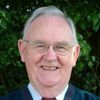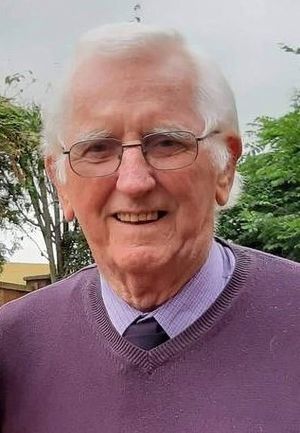A Christian was walking through a city shopping centre recently. Unexpectedly, a stranger offered him five booklets, which seemed Bible-based. All of them had been written (or transcribed from addresses) by Horst Schaffranek. The Christian felt uncomfortable. The stranger was harsh and intolerant as he talked about Christians and the multiplicity of churches in each town. Anyway, the Christian had never heard of Schaffranek. He bid goodbye to the stranger and put the booklets in his pocket.
Background
Later the Christian approached me. His question was: ‘Who is Horst Schaffranek?’ I confessed my ignorance. He showed me the booklets and I agreed to make enquiries.
The Internet has been a considerable help in my search for information. My judgement is that Christians should be aware of Schaffranek’s influence in Germany, as well as the errors he teaches.
Born in 1923 in Schlesien, Germany, to Roman Catholic parents, Horst Schaffranek appears to have professed faith in Christ as a young man. He eventually became a Free Church minister in Stuttgart in 1954, and until the mid-1970s was known in German evangelical circles.
Married with seven children, Schaffranek began to major on his distinctive views from the early 1970s. He developed the ‘Schaffranek community’ for his followers, together with some centres scattered around the country.
The literature from this group informs us that Schaffranek has been active for over fifty years as an evangelist, counsellor and teacher in many denominations in Germany – as well as in many other countries like the USA, Canada, Latin America, Europe, Africa, Middle East and Far East.
Claims
The claim is that he ‘brings to light the standards of the New Testament that God’s people have abandoned and thus challenges them to consequent obedience’. We vigorously dispute this claim.
Schaffranek is still alive and his home is in Rickenbach, Germany. He and his followers are well known to the Evangelical Alliance in Germany – but for the wrong reasons! They have a reputation for disturbing Christian meetings, using aggressive methods and insulting language.
Two examples can be given.
In 1996 an aged German minister, Paul Deitenbeck, was insulted and intimidated by a group of Schaffranek’s followers during and after a theology lecture he gave in Krelingen.
Their technique is at first to give people the impression of being gracious and friendly. Then, unexpectedly, during or after a meeting, these same people become aggressive and abusive. Frequently, they are forcibly removed from meetings by police.
Another occasion was the German Evangelical Churches conference held in Stuttgart in 1999. The concluding service in Gottlieb Damlier Stadium was marred by Schaffranek’s disciples demonstrating in the service in an appalling manner.
Questions
In Germany over recent years, in regional and national gatherings of churches and their leaders, such behaviour has continued unabated. On one occasion, Schaffranek’s followers claimed that the conference president had agreed that they should disturb the meetings! This was, of course, totally untrue.
Two questions must be raised at this point. The first concerns the reasons for such behaviour in opposing church leaders and disturbing meetings. A second question concerns Horst Schaffranek himself. What kind of influence does he have on his followers? Is he a cultic figure?
Concerning the latter, former disciples of Schaffranek, and church leaders who have suffered disturbances, agree in their concern for his followers.
One former member, for example, is convinced that Schaffranek’s messages can be likened to a ‘brain laundry’ – all his followers think in exactly the same way, with no deviation at all. They appear to be indoctrinated and give little evidence of thinking for themselves.
A number of people who had been associated with this movement state that Schaffranek himself will not tolerate personal criticism. Nor will members allow anyone else to criticise their leader.
As one person observed, there ‘prevails a certain papacy’ in the movement; an infallibility is attached to Schaffranek which is neither healthy nor scriptural.
Confused theology
Equally disturbing are reports of individuals being pressurised and pursued by telephone calls and house calls – even years after leaving the Schaffranek community. Young people who join the community are not encouraged to have contact with their families.
The overall impression, therefore, is of a cultic-type leader who exercises immense control over the thinking and behaviour of his followers.
But why does Schaff-ranek insist that his people protest in meetings?
There is a theology which prompts this type of behaviour, but it is confused and lacks biblical balance and warrant. I need to explain.
Despite using the Bible, Schaffranek is heretical with regard to some major doctrines, specifically the doctrines of God and Scripture.
According to one website, he teaches that all humans can obtain ‘realisations’ in ‘becoming like God … You can become God on this earth’.
Here is a blatant denial of Bible teaching: ‘For I am God, and there is no other; I am God, and there is none like me’ (Isaiah 46:9; 45:18-22). Even in heaven – where believers will be conformed to the likeness of Christ – we will remain created beings.
In terms of purity we will be like Christ. However, we will continue to be unlike Christ in terms of his essential glory as God the Son, a glory he shares exclusively with the Father and the Holy Spirit.
Revelation
Schaffranek’s view of the Bible and revelation must also be condemned. Ruether, a German church leader, reports that Schaffranek has ‘left the soil’ of Holy Scripture. How? Because he regards the Bible as being a ‘second class’ level of revelation.
According to Schaffranek, the superior ‘first class’ level of revelation consists of private, direct revelations and guidance allegedly given him by God. This is a fundamental and tragic error.
He has abandoned the Bible as his supreme authority in matters of faith and conduct. It is on the basis of his false claim to receive direct revelations from God that Schaffranek also offers distinctive teaching concerning the church.
‘The Lord is leading his people back to 1 Corinthians 1:10, “…that all of you agree…” that is one body in one locality’ (Judgement, p.19). This is central for Schaffranek. And, he insists: ‘only the church in one locality is a sufficient protection against attacks’ from the devil and his evil hosts (Omitted Warfare Against Evil Spirits, p.17).
For Schaffranek, a multiplicity of churches in a locality is sinful, demonic, and a major hindrance to the growth and reviving of Christ’s church. It also incurs the judgement of God. Such divisions, he argues, are ‘always a result of a lack of light, of God’s presence’ (Judgement, p.35).
Peace and trouble
On the basis of 1 Corinthians 11:19 (‘For there must be factions among you’), Schaffranek justifies his aggressive policy of protesting at such divisions by disturbing and wrecking denominational and interdenominational meetings.
The context of 1 Corinthians 11:19 is the Lord’s supper, particularly the ‘divisions’ (v.18) in the local church arising out of selfish, thoughtless attitudes. In verse 19 Paul adds that such divisions are graciously overruled by God, who enables us to distinguish – between those who are divinely ‘approved’ in their behaviour and attitudes, and those who are not.
Yes, Schaffranek misunderstands the text. He is wrong in saying that God wants us to purify the church by creating and perpetuating disturbances.
Do I need to attack my brothers in the Lord? Schaffranek’s answer is: ‘If you want to have peace, you will first have to have trouble’ (Judgement, p.22), and ‘wrong ideas will have to be destroyed’ (p.25).
Sadly, Schaffranek ignores important aspects of the Bible teaching. Truth is important and heresies must be opposed. Bible-believing churches need to express more visibly their unity in the gospel.
But Christians must also ‘love one another’ (John 15:17; 1 John 3:14) and ‘speak the truth in love’ (Ephesians 4:15). In fact, ‘a servant of the Lord must not quarrel but be gentle to all … patient …’ (2 Timothy 2:24).
Our prayers are needed for this man and his followers – especially that God ‘will grant repentance, so that they may know the truth and come to their senses and escape the snare of the devil’ (2 Timothy 2:25-26).















